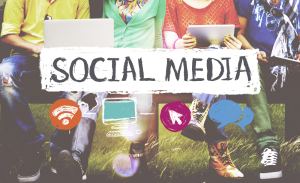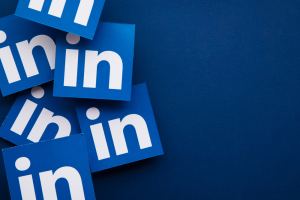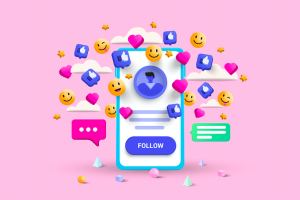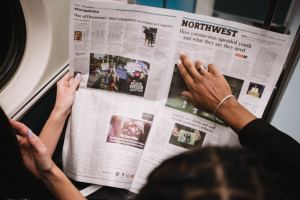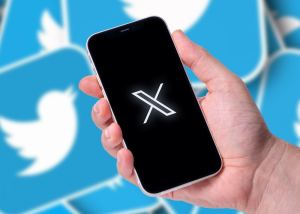Tag: digital marketing - Page 3
Elevate Your Social Media Presence in 2023: An In-Depth Guide with Robotic Marketer
Entering the fiercely competitive realm of digital marketing requires a sustainable social media presence, and the Robotic Marketer platform is your expert guide to implementing transformative strategies to improve social media engagement in Atlanta. Success in marketing goes beyond mere relevance; it demands adaptability and strategic finesse. The Robotic Marketer platform, driven by artificial intelligence and data analytics, doesn't just ensure current brand relevance but assures enduring sustainability. Let Robotic Marketer guide your brand toward a social media presence that not only survives but thrives in the digital era. Below, we delve deeper into how the Robotic Marketer platform can revolutionize your social media engagement.
SEO in 2024: Navigating Algorithm Changes and Best Practices for Website Optimization
Navigating the dynamic terrain of digital marketing in today's world, it's clear that mastery in Search Engine Optimization (SEO) is crucial for any business desiring to excel. But what exactly encompasses SEO? It's a comprehensive process aimed at not just increasing the amount of traffic to your website via search engines, but also enhancing its quality. This is achieved by meticulously refining your website’s technical infrastructure, elevating the pertinence of your content, and bolstering your overall link presence. Such strategies guarantee that your web pages not only appear in search engine responses but also stand out prominently.
Becoming a Professional Marketing Consultant: The Key Elements
Becoming a Professional Marketing Consultant has gained significant traction in recent times. As businesses delve into the complexities of digital marketing, this profession has garnered a lot of attention. It likely appeals to individuals as it opens opportunities to be creative, create strategies and engage with visionary mentors.
While the idea of crafting brand narratives, designing innovative campaigns and connecting with diverse audiences across platforms is wonderful, success as a Marketing Consultant demands more than just creativity. It requires honed skills, from data analysis and trend interpretation to staying updated on the evolving digital landscape. Let's delve into five critical aspects that will help you establish yourself as a trusted and effective marketing consultant.
Unlocking Success in B2B Industrial Real Estate Marketing: Strategies for Real Estate Agents
In the ever-fluctuating world of properties, B2B industrial properties hold a unique place. Insiders know that catering to businesses and enterprises rather than individual consumers, B2B industrial real estate marketing requires a strategic approach that goes beyond traditional residential marketing tactics. As a real estate agent specializing in industrial properties, understanding the key components, and challenges of B2B marketing is crucial to unlocking success for your clients. So let’s delve into the world of B2B industrial real estate marketing, and explore effective strategies to help you navigate this niche market.
Elevating B2B Marketing with LinkedIn Groups
In today's world of business, B2B marketers are continually seeking innovative ways to stand out from the crowd, connect with their target audience, and drive brand awareness. Among the array of marketing platforms available, LinkedIn Groups have emerged as a game-changer, offering businesses an unparalleled opportunity to elevate their B2B marketing efforts. By leveraging these virtual communities to connect with industry peers and potential clients, businesses can showcase their expertise, establish thought leadership, and generate valuable leads. Explore the significance of LinkedIn Groups in B2B marketing and unveil strategies to unlock their true potential.
The Power of Marketing: How it Influences Capital Raising Efforts
When it comes to raising capital, businesses often focus on traditional strategies such as financial projections, market analysis, and business plans. While these aspects are undeniably crucial, the influence of marketing in the capital raising process should not be underestimated. Effective marketing can significantly impact an organization's ability to attract investors, secure funding, and build strong relationships with stakeholders.
Unearthing the Voices of Your Audience: The Power of Social Listening
In the fast-paced and interconnected world of digital technology, social media stands as an unrivalled conduit for human expression and connection. Within this bustling realm of tweets, posts, and shares, lies a hidden treasure trove of invaluable insights, waiting to be unearthed by businesses—the art of social listening. Embark on a captivating journey to unravel the profound significance of social listening and its transformative impact on businesses across industries. Prepare to delve deep into the heart of this vital practice and discover how it empowers companies to unlock the enigmatic voices of their audience, grasp their emotions, and curate personalized experiences that establish unbreakable bonds with customers.
Does Modern Marketing Mean 100% Digital?
The world is ever-evolving. Humans are no longer in the place we used to be five years ago. And marketers must hop on that train towards the unknown future. Every day, a new device, a new technology, or a new social media platform comes into being. But does that mean modern marketing is turning fully digital? The answer is no. No matter how advanced we are with our tech, there is always a place for the non-digital world.
From Twitter to "X": Elon Musk’s Bold Super-App Venture
Under the new leadership of CEO Linda Yaccarino and new owner Elon Musk, who made headlines by acquiring Twitter in a jaw-dropping $44 billion deal in 2022, the once-familiar social media giant has embarked on an audacious transformation and rebranding journey. Formerly known as Twitter, the platform now takes on a new identity as "X," with the ambitious goal of evolving into a super-app that rivals China's WeChat by offering a diverse array of services beyond traditional social media functions.
How Are Millennials Reacting to Social Media in 2023
The digital era has revolutionized the way we connect, communicate, and consume information. Social media platforms, once hailed as the pinnacle of connectivity, are now witnessing a noticeable shift in millennial behavior. With a keen focus on privacy, mental health, and personal growth, millennials are consciously reducing their usage of social media platforms.
Awareness of Privacy Concerns
In recent years, millennials have become increasingly aware of the potential privacy breaches and data security issues associated with social media platforms. We can see this in the introduction of Threads and the media attention their terms of service have gained. Stories of personal information misuse and unauthorized access have fueled concerns, prompting a re-evaluation of social media usage habits.
The era of oversharing has given way to a desire for personal privacy. Millennials are conscious of the need to safeguard their personal lives and information, leading to a reduction in their social media presence and questioning of data usage.
Overcoming the Addictive Nature
Recognizing the addictive nature of social media, millennials are reclaiming control over their time and attention. They strive to break free from the alluring pull of endless scrolling and notifications, seeking a healthier balance between the virtual and real world.
Millennials are striving to break free from the constant need for validation and "likes" on social media. They realize that self-worth should not be determined by external metrics, but rather by internal fulfillment. Many online accounts have been created endorsing this line of thinking. With many brands also adopting promotion of outdoor activities to reach the audiences new interests.
Battling Negative Mental Health Effects
The relentless exposure to carefully curated lives on social media has been linked to negative mental health outcomes such as anxiety, depression, and low self-esteem. Millennials, being more conscious of their mental well-being, are actively reducing their social media consumption to mitigate these harmful effects.
Social media often perpetuates an idealised version of people's lives, fostering a culture of comparison. Realising the detrimental impact on their self-worth, the need to distance themselves from this constant cycle of comparing their lives to others is recognised.
The promotion of unrealistic beauty standards and the consequential impact on body image have caught the attention of millennials. Rejecting the unhealthy pressures that social media often imposes, they choose to prioritise self-acceptance and embrace diverse notions of beauty. This notion can be seen on their online behaviour as the demand for diversification in many industries has become a common practice.
Millennials prioritise quality sleep by reducing screen time before bed, allowing for restful nights and better cognitive function. As excessive social media use can disrupt sleep patterns and hinder overall well-being many accounts have advised against the use of mobile phones entirely within set hours of the day. Popular content such as this is often labelled under Hustle culture or Wellness culture with creators advertising a healthier lifestyle by following a set of flexible guidelines.
Yearning for Real-Life Experiences
Amid the digital age, millennials are yearning for genuine connections and real-life experiences. They seek meaningful face-to-face interactions over superficial online engagements, recognising the importance of human connection in an increasingly virtual world. This brings attention to the increased prevalence of cyberbullying and superficial relationships in recent years. People are being taught basic preventative measures as early as high school as the effects of online bullying become more serious.
The addictive design features embedded within social media platforms has turned off many users. Millennials are actively breaking free from the addictive cycle, fostering healthier digital habits and reducing their reliance on external validation. The uprise of content against social media has advertised this notion since the pandemic, where social media experienced an increase in users but also the popularisation of family activities and creative ways to communicate with friends. The digital detox movement has gained momentum as millennials recognise the importance of disconnecting from the virtual world. They engage in mindfulness practices, self-care routines, and periods of social media abstinence to recharge.
There's a personal acknowledgement that excessive social media use contributes to a sedentary lifestyle. By reducing their screen time, they aim to lead more active lives, prioritising physical and mental well-being.
Misinformation and Fake News
Social media's role in the spread of misinformation and fake news has become a prominent concern. Millennials, valuing accurate and reliable information, are distancing themselves from platforms that are breeding grounds for falsehoods. As informed consumers, Millennials quickly discern advertisements and information they deem as misleading or ingenuine, opting instead for a personable personality and in-depth review for product endorsement.
The pervasive presence of online advertising and its manipulative effects on consumer behaviour have raised concerns among millennials. By reducing social media usage, they mitigate the impact of targeted ads, promoting a healthier relationship with consumption.
Time-Consuming Nature
The time-consuming nature of social media often detracts from productivity and real-world pursuits. Recognising the value of their time, millennials are allocating it to activities that contribute to personal growth and success.
With the emergence of messaging apps and group chats, millennials are finding more focused and private avenues for communication. These platforms offer intimacy and exclusivity, fostering deeper connections away from the noise of social media. By exploring alternative online platforms that provide specialised content and entertainment. Streaming services, podcasts, and niche websites offer tailored experiences that cater to their unique interests, diverting attention away from social media.
Environmental Considerations
The environmental impact of social media data centres has caught the attention of environmentally conscious millennials. By reducing their digital consumption, they contribute to reducing the carbon footprint associated with online activities.
Shifting Priorities and Personal Growth
Millennials are shifting their priorities towards offline hobbies, creative pursuits, and personal growth. By reducing social media usage, they allocate more time to self- improvement and pursuits that nourish their passions. Social media is recognised to be a significant source of distraction, hindering focus and productivity. Reducing their use is often a simple solution to create an environment conducive to deep work and improved concentration.
Growing sceptical of curated online personas, Millennials aspire for more genuine connections. They seek authentic interactions that transcend the superficiality of social media, fostering deeper relationships and emotional intimacy.
Rediscovering the Art of Self-expression
The pressure to conform to social media standards can hinder genuine self-expression. Millennials are exploring alternative mediums to showcase their creativity and uniqueness, embracing the richness of self-expression outside the confines of social media.
Millennials' reduced usage of social media reflects their evolving mindset, driven by concerns for privacy, mental well-being, and personal growth. Through a conscious re- evaluation of their digital habits, millennials are reclaiming control over their lives, fostering deeper connections, and prioritising holistic well-being. As the digital landscape continues to evolve, understanding these trends is crucial to navigating the future of connectivity in a mindful and purpose-driven manner.


